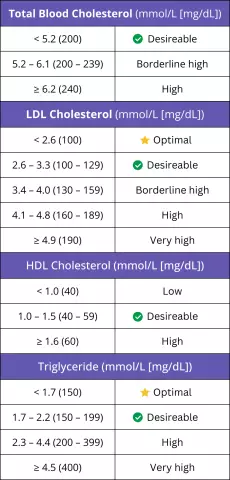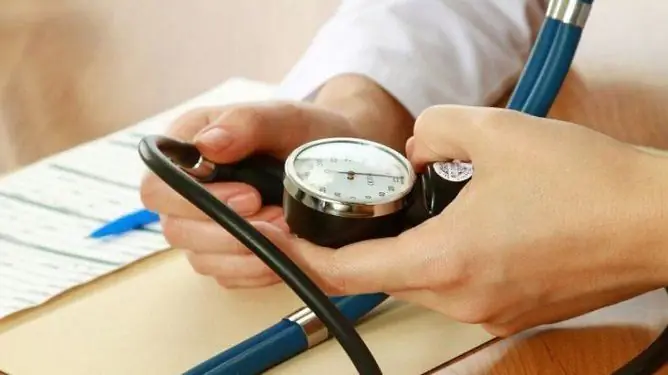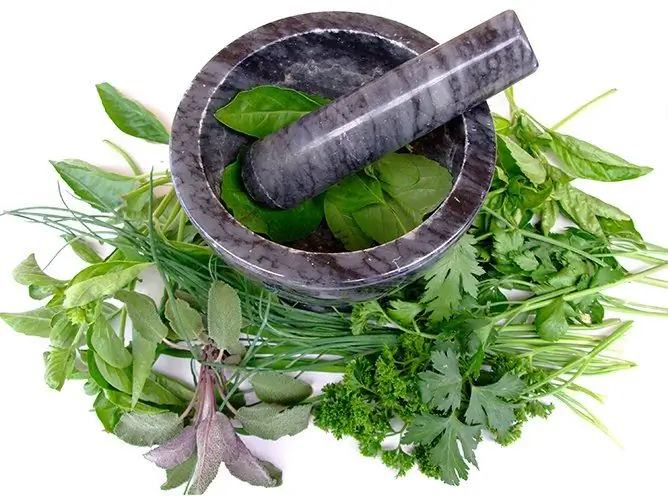- Author Rachel Wainwright wainwright@abchealthonline.com.
- Public 2023-12-15 07:39.
- Last modified 2025-11-02 20:14.
5 ways to lower blood cholesterol
The harm of high levels of "bad" cholesterol for the body is obvious. It has already been proven that this condition leads to atherosclerosis and, therefore, increases the risks of stroke and heart attack, metabolic syndrome and even Alzheimer's disease (senile dementia). Every day there are more and more new medical data that build a causal relationship between excess cholesterol and malfunctions in the body. What needs to be done right now to take care of your cholesterol balance?

Rejection of bad habits
A lot has been written about the dangers of smoking, and a lot has already been said, and I don't really want to read about it again. But in the case of high cholesterol, this advice is more relevant than ever. Nicotine and combustion products do damage blood vessels. On the inner wall of the arteries, microdefects are formed, which the body tries to "patch" with cholesterol circulating in the blood. As a result, an atherosclerotic plaque forms, which sooner or later is capable of completely blocking the arterial lumen.
This is why quitting smoking is so important. After a few months, the level of cholesterol in the body decreases to a concentration that is characteristic of a non-smoker, because the excretion of excess cholesterol is accelerated.
Physical activity
Physical activity has a positive effect on cholesterol metabolism. On the one hand, sports activities prevent obesity, and on the other hand, they accelerate blood circulation, and thereby prevent cholesterol from attaching to the vascular wall, i.e. no cholesterol plaque is formed.
Scientists have established quite accurately what the optimal pace of physical activity should be in order to really reduce the risks of atherosclerosis. It turns out that it is enough to burn 250 "unnecessary" kilocalories every day. This is equivalent to 45 minutes of regular walking or 25 minutes of jogging. But if you don't like running or walking, swimming, yoga, fitness, dancing, etc. are great. The main thing is to practice regularly and with pleasure. So you will not only protect the blood vessels, but also give yourself a good mood, because during physical activity endorphins are produced - recognized hormones of pleasure.

Rational diet
The cholesterol level in the body consists of 1/3 of food cholesterol, and 2/3 of that synthesized in the liver. Just this one-third can and should be influenced by proper nutrition. Your daily diet needs to be changed so that a heart attack or stroke does not hang over you with the sword of Damocles.

Healthy eating principles are simple and easy to follow:
- Try to eat at least 400 grams of fruits and vegetables a day. They contain a large amount of coarse fiber, which swells in the intestines, absorbs excess cholesterol, so it is not absorbed into the general bloodstream.
- Eat 5-6 times a day at regular intervals. So you teach your body that every 2.5-3 hours it will receive food, which means you do not need to store fat for future use. You should eat in small portions (approximately 200 ml).
- Try to consume legumes regularly - beans, lentils, peas, beans. In one reputable study, these foods have been shown to lower the levels of "bad" cholesterol.
- Limit your trans fat intake as much as possible. These substances do not bring any benefit to the body. They are easily enough deposited on the vascular wall, destroying it, and also cause obesity (a person does not even notice how he overeats). Most often, trans fats are found in sweets, fast foods, baked goods, sausages, etc. It is easy to find them in the product. It is enough to read the label, and if you come across the phrase "dehydrogenated fats", leave the product on the shelf without regret.
Drinking regime
Scientists advise drinking at least 1.5 - 2 liters of regular water per day. It is advisable to do this 20-30 minutes before meals. The liquid is necessary, on the one hand, so that the cellulose taken from food swells and begins to adsorb harmful substances (including cholesterol), preventing them from entering the bloodstream. On the other hand, water is the basis of all biochemical reactions in the body. If intracellular dehydration develops, then metabolism is significantly impaired and toxins appear that damage the vessel from the inside.

Metabolic drugs
Drug therapy prescribed by specialists for high cholesterol levels and the threat of atherosclerotic plaque development includes a number of drugs, including statins, that affect cholesterol metabolism. Unfortunately, even drugs specifically designed to lower blood cholesterol levels do not always help achieve the desired levels.
That is why experts are unanimous in the need for an integrated approach to improve lipid metabolism. Recently, they are paying more and more attention to metabolic drugs that can improve the treatment.
Such a drug is Dibikor - an over-the-counter drug developed by domestic scientists based on taurine. Dibikor helps to reduce the level of "bad" cholesterol, improves metabolic processes in the heart and liver.
The drug can be taken in combination therapy of high cholesterol in conjunction with statins. Added to complex therapy, Dibikor promotes a more pronounced decrease in high cholesterol levels. For patients with diabetes, it can help not only lower blood cholesterol, but also better control sugar levels.

Watch your cholesterol levels and stay healthy!
Found a mistake in the text? Select it and press Ctrl + Enter.






